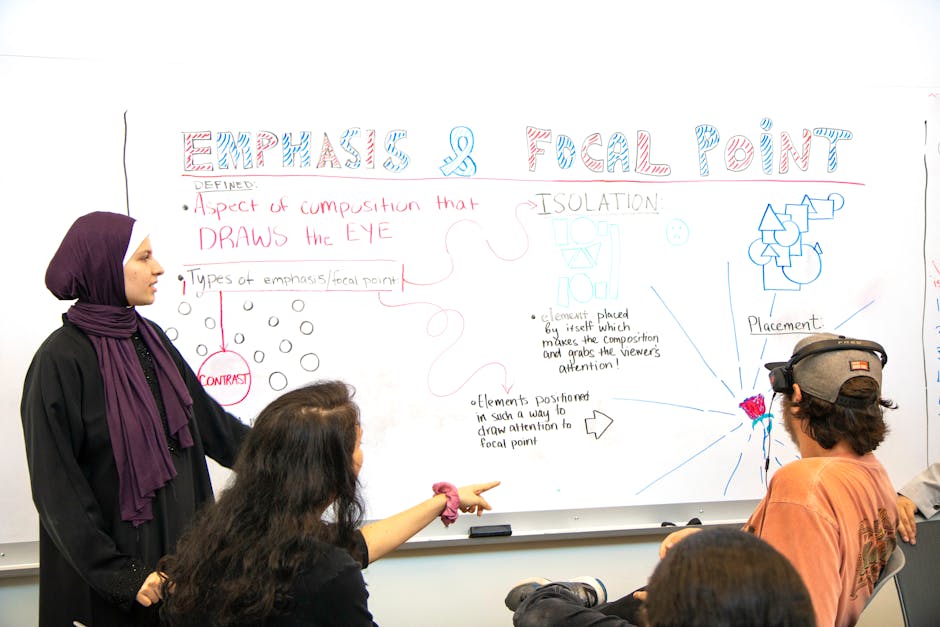Leadership Development: Nurturing Tomorrow's Visionaries in the Modern Workplace
"This article delves into the critical aspects of leadership development in today's dynamic work environment. It explores innovative approaches to nurturing future leaders, emphasizing the importance of adaptability, inclusivity, and continuous learning in shaping effective leadership strategies. "

The Evolving Landscape of Leadership Development
In today's rapidly changing business environment, leadership development has become more crucial than ever. Organizations are recognizing the need to cultivate leaders who can navigate complex challenges, inspire teams, and drive innovation. This article explores the key aspects of effective leadership development in the modern workplace.

Embracing Adaptability and Resilience
One of the primary focuses of contemporary leadership development programs is fostering adaptability and resilience. In an era of constant change, leaders must be able to pivot strategies, embrace new technologies, and guide their teams through uncertainty.
Effective leadership development initiatives now incorporate:
- Scenario-based training to enhance decision-making skills
- Mindfulness practices to build emotional resilience
- Cross-functional projects to broaden perspectives and adaptability
Cultivating Inclusive Leadership
As workplaces become increasingly diverse, the ability to lead inclusively has become a critical skill. Leadership development programs are now placing a strong emphasis on:
- Understanding and valuing diversity
- Developing empathy and cultural competence
- Creating inclusive team environments
By focusing on these areas, organizations are preparing leaders who can harness the power of diverse perspectives and create more innovative, engaged teams.

Leveraging Technology in Leadership Training
The integration of technology in leadership development has opened up new avenues for learning and growth. Virtual reality simulations, AI-powered coaching tools, and online collaborative platforms are revolutionizing how leadership skills are taught and practiced.
These technological advancements allow for:
- Personalized learning experiences tailored to individual needs
- Real-time feedback and performance tracking
- Global collaboration and knowledge sharing among emerging leaders
Emphasizing Continuous Learning and Growth
In the fast-paced business world, the concept of leadership as a continuous journey rather than a destination has gained prominence. Leadership development plans now focus on instilling a growth mindset and a commitment to lifelong learning.
Key components of this approach include:
- Regular self-assessment and reflection exercises
- Mentorship and reverse mentorship programs
- Encouraging leaders to seek out diverse experiences and challenges
Balancing Soft Skills and Technical Expertise
While technical expertise remains important, there's an increasing recognition of the value of soft skills in effective leadership. Modern leadership development programs are striking a balance between enhancing technical knowledge and developing crucial soft skills such as:
- Emotional intelligence
- Communication and active listening
- Conflict resolution and negotiation
These skills are essential for building strong relationships, fostering team cohesion, and navigating complex interpersonal dynamics in the workplace.

Aligning Leadership Development with Organizational Goals
Effective leadership development is not just about individual growth; it's about aligning that growth with organizational objectives. Companies are now designing programs that:
- Reflect their unique culture and values
- Address specific business challenges and opportunities
- Prepare leaders for future roles within the organization
This alignment ensures that leadership development efforts contribute directly to the company's strategic goals and long-term success.
Conclusion
Leadership development in the modern workplace is a multifaceted endeavor that requires a holistic approach. By focusing on adaptability, inclusivity, technological integration, continuous learning, and a balance of soft and technical skills, organizations can nurture leaders who are well-equipped to guide their teams through the challenges of today and tomorrow.
As we move forward, the most successful companies will be those that invest in comprehensive leadership development programs that evolve with the changing needs of the business world. By doing so, they not only enhance individual capabilities but also build a strong foundation for organizational resilience and growth.
Want to learn more about Workplace Experience?
Explore our complete guide with more articles like this one.


